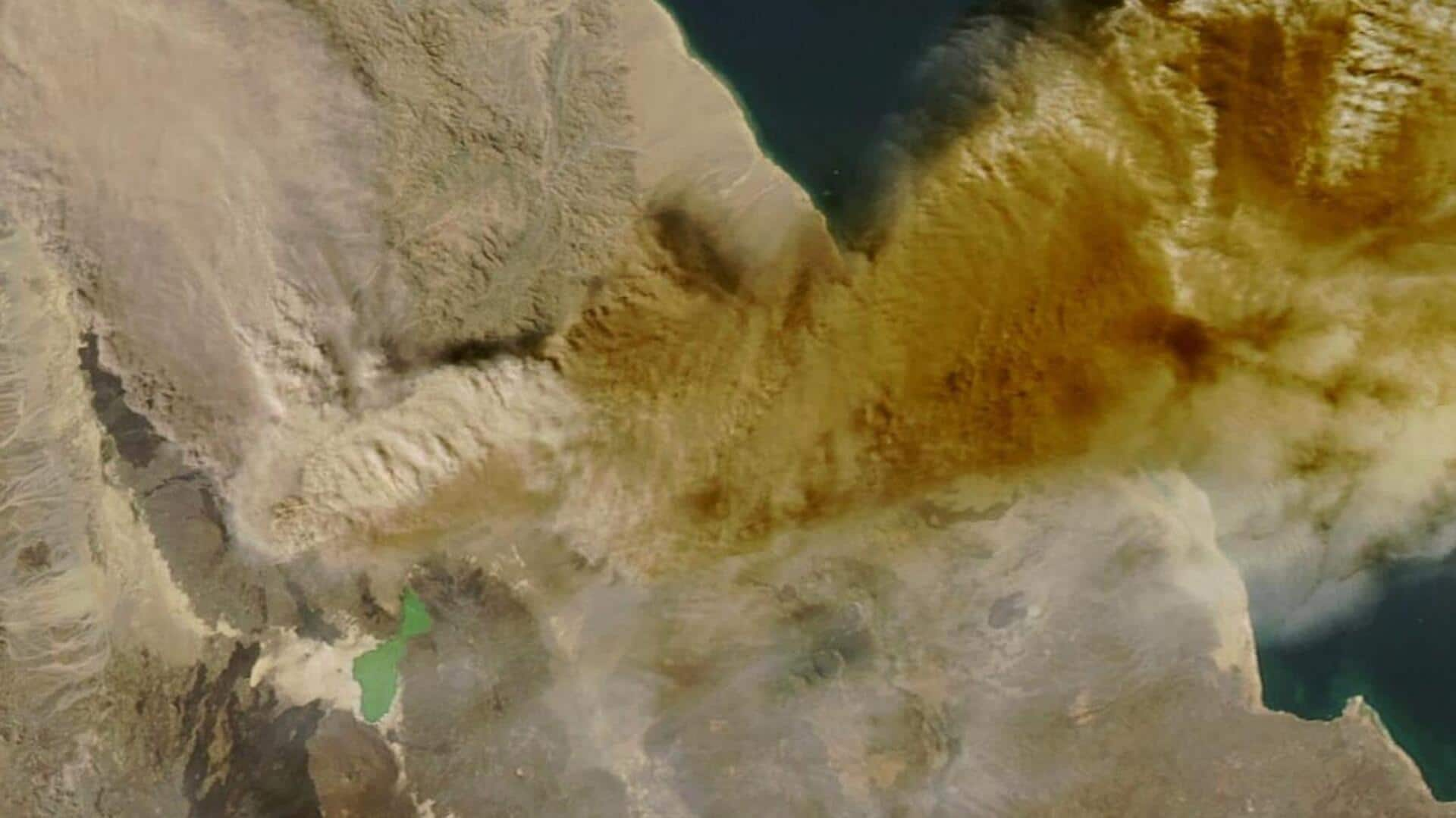
Ethiopian volcano subsides, leaving disruptions and canceled flights across region
What's the story
The long-dormant Hayli Gubbi volcano in Ethiopia subsided on Tuesday evening, after a weekend eruption that caused widespread destruction in nearby villages. The volcanic ash from the eruption disrupted high-altitude flight paths, leading to the cancellation of many flights. The Afdera district in the Afar region was particularly affected, with villages covered in ash and residents coughing.
Flight cancelations
Volcanic eruption disrupts air travel, affects local livestock
The volcanic ash from the Hayli Gubbi eruption disrupted high-altitude flight paths, leading to widespread cancellations. Air India canceled 11 flights on Monday and Tuesday, most of them international, to inspect aircraft that may have flown over affected areas. Akasa Air also canceled flights to Middle Eastern destinations like Jeddah, Kuwait, and Abu Dhabi over the past two days. At least seven international flights at New Delhi's Indira Gandhi International Airport were canceled, and a dozen were delayed.
Relief efforts
Health and livestock services deployed in affected Ethiopian areas
In response to the eruption, mobile medical services were launched in Ethiopia's Afdera district. Abedella Mussa, a health official in the area, said residents were coughing due to ash exposure. Two medical teams were dispatched to assist in affected neighborhoods like Fia and Nemma-Gubbi. Livestock also suffered as animals couldn't find clean water or grass covered by volcanic ash. Nuur Mussa, an official responsible for livestock welfare, highlighted this issue.
Geological significance
Hayli Gubbi's eruption marks 1st in 10,000 years
Atalay Ayele, a geologist at Addis Ababa University, confirmed that this was the first recorded eruption of Hayli Gubbi in 10,000 years. He explained that Ethiopia sits on an active rift system where volcanism and earthquakes are common, AFP reported. The India Meteorological Department said high-level winds carried the ash cloud from Ethiopia across several regions toward western and northern India. The weather department stated the ash plume had fully exited the country by around 10:30pm, Tuesday.